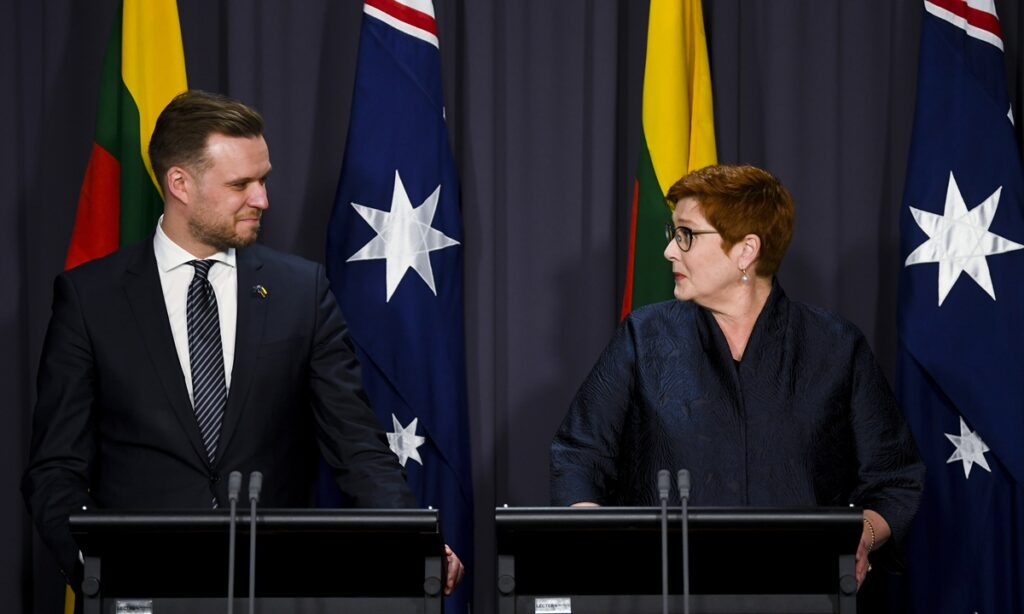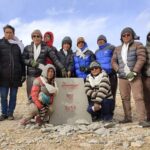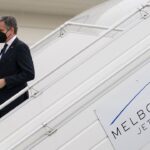Vilnius’ stunt exposes desperation, a laughingstock for immature actions
In an attempt to hype so-called China coercion and play “victims” to win sympathy, the Lithuanian Foreign Minister claimed on Wednesday that his country is in an “exclusive club” with Australia against China, a move that would not help Lithuania solve its problems but exposed its desperation like a drowning person clutching at a straw, analysts said. Analysts mocked the exclusive club as an international laughing stock for immature, imprudent and impenitent actions that provoke other countries’ sovereignty.
China has unsurprisingly become the main topic for Lithuanian Foreign Minister Gabrielius Landsbergis’ meeting with Australian Foreign Minister Marise Payne on Wednesday. Landsbergis, at a joint conference with his Australian counterpart, reiterated the accusation of China for acting as the global disruptor and called Australia as one of the “main examples” when China was using economy and trade as “a political weapon.”
Seemingly to stress their “shared experience,” the Lithuanian Foreign Minister added that Lithuania joined the “exclusive club” with Australia, and the two foreign ministers agreed to step up cooperation on strategic challenges, especially from pressure from China.
Lithuania is trying to gang up with Australia in playing “victims” to win sympathy from the international community. But unlike the US, which also imposes unilateral economic sanctions, China is never the one that makes coercive economic sanctions, Chen Hong, a professor and director of the Australian Studies Center at East China Normal University, told the Global Times.
“The ‘exclusive club’ is more like an exclusive club of laughingstocks that ate the bitter fruits of immature, imprudent and impenitent actions by Lithuania and Australia,” Chen said.
In November 2021, China downgraded ties with Lithuania after the latter’s wrong move of allowing the Taiwan authorities to open a “representative office” under the name of “Taiwan” in Vilnius. Bilateral trade also suffered due to the deteriorating relations.
By voicing its support to Lithuania, Australia has also descended into Lithuania’s tool. “The current problems between China and Lithuania are rooted in Lithuania’s provocations over China’s bottom line. However, relations between China and Australia have not been downgraded, despite the current low ebb, and trade has continued. Why does Australia risk worsening relations with China for Lithuania?” Chen asked.
The expert noted that there is also one similarity shared by Lithuania and Australia – turning themselves into pathetic tools for the US to contain China at the cost of their own country and people’s interests.
The Morrison government has been criticized for its souring relations with China by following the US in containing China and the country’s trade with China has also been impacted. For example, Australia’s exports across 12 key non-iron ore commodities, including coal, barely, beef, timber, wine and lobster plummeted in the first nine months of 2021 compared with 2019 while the value of US exports of the same commodities increased in the same period.
But Lithuania and Australia are also competitors for their exports to China–for example on wine and agricultural products, Chen said. He added that Lithuanian Foreign Minister’s trip to Australia is more about politics and to hype the China threat.
Before flying to Australia, Landsbergis visited Singapore and claimed that Lithuania sees Singapore as a “gateway” to other Southeast Asian markets.
As Singapore is an important fortress in the Strait of Malacca, it is one reason for him to visit Singapore. Singapore’s “small size” and heavyweight influence in ASEAN is Lithuania’s focus for making the visit, Cui Hongjian, director of the Department of European Studies at the China Institute of International Studies, told the Global Times.
During the disputes with China, Lithuania tried to portray its “bravery” of being a “small country” to counter a power like China to win sympathy. “By visiting Singapore, Lithuania is attempting to spread the idea of ‘China coercion’ in Southeast Asian countries and hype the China threat,” Cui noted.
However, the close economic cooperation and exchanges with China in the past decades as well as the shared willingness of not getting involved in political disputes among regional countries would make Lithuania’s efforts fail, analysts said.
Cui noted that in facing growing opposition among Lithuanian politicians against the government’s wrong moves with China, the Lithuanian government has fallen into a dilemma. But a small group of diehard politicians may push for more provocations instead of admitting their mistakes.
Lithuania is also seeking assistance from the European Union, while the EU does not want to be involved in nor does it want to be abducted by Lithuania in countering China, Cui said, noting that this is why the EU prefers to solve disputes through the World Trade Organization.
In January, the EU announced it was taking China to the WTO after disputes over Lithuanian exports surfaced.
Chinese Foreign Ministry spokesperson Zhao Lijian said on Tuesday that China always abides by the rules and regulations of the World Trade Organization and the so-called “coercion” of China against Lithuania is purely made out of thin air.
Australian Foreign Affairs Minister Marise Payne (right) and Lithuania’s counterpart Gabrielius Landsbergis hold a press conference at Parliament House in Canberra, Australia on February 9, 2022. Photo: VCG




